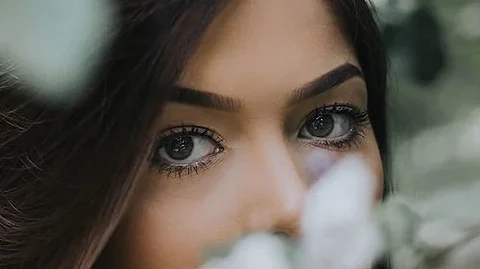
- Union Budget 2026
- Home
- NewsGram USA
- India
- न्यूजग्राम
- World
- Politics
- Entertainment
- Culture
- Lifestyle
- Economy
- Sports
- Sp. Coverage
- Misc.
- NewsGram Exclusive
- Jobs / Internships

Of particular concern is the alarming increase in air pollution during the Diwali season.
As per a report from Swiss technology company IQAir, India holds the eighth position globally in terms of air pollution, with a significant number of the 15 most polluted cities located within its borders. This upsurge in air pollution, especially during Diwali, can have adverse effects on our well-being, particularly our eyes, resulting in discomfort, redness, irritation, and excessive tearing.
In light of these challenges, IANSlife presents five expert tips to ensure your eyes stay protected during Diwali.
Limit Exposure to Firecrackers
One of the most enjoyable aspects of Diwali is the bursting of firecrackers, but it’s also one of the most dangerous activities for your eyes. Dr. Ajay Sharma, Chief Medical Director of Eye-Q, an eye specialty hospital says, "It’s essential to avoid direct gazing at fireworks, especially those that produce intense flashes of light. Staring at bright lights can lead to temporary or permanent damage to your vision, such as flash blindness or retinal damage. To avoid the risk of getting hit by stray sparks or debris, it is recommended to stand back from the source of the fireworks and wear protective eyewear, such as safety goggles, to shield your eyes from potential flares and harmful chemicals that can be released during firecracker explosions."
Precautions While Cleaning for Diwali
A significant part of Diwali preparations involves sweeping, dusting, and decluttering every corner of your home. During this process, dust and debris become airborne, posing potential risks to your eyes. Dr. Ajay asserts, "These particles are often laden with allergens and microscopic pollutants that can cause eye irritation and discomfort. When cleaning your home for Diwali, it is advisable to use a face mask and ensure proper ventilation to minimise indoor air pollution."
He continues, "Cleaning solutions and chemicals can produce fumes and splashes that may cause eye irritation, redness, or even more severe injuries. When using these products, always read and follow the manufacturer’s instructions, and wear gloves and eye protection if necessary. In case of accidental contact with cleaning agents, rinse your eyes thoroughly with clean water and seek medical attention if irritation persists."
Stay Hydrated
Maintaining proper hydration is crucial for overall well-being, including the health of your eyes. Throughout Diwali, individuals often get engrossed in celebratory events, inadvertently neglecting their hydration needs. According to the Chief Medical Director of Eye-Q, dehydration can trigger dry eyes, causing discomfort and potentially leading to eye strain. He suggests, "It’s essential to be mindful and ensure you consume an adequate amount of water during Diwali, particularly if you’re outdoors, watching firework displays, or engaging in various festivities. Adequate hydration is pivotal in preserving the tear film on your eyes, ensuring they remain comfortable, and lowering the chances of experiencing eye fatigue."
Use Artificial Tears and Air Purifiers
During Diwali, the air can become drier due to firecrackers and variations in weather. Dr Ajay provided more expert advice to address this issue and that is to consider using artificial tears or lubricating eye drops. These drops can help maintain moisture in your eyes, ensuring they remain comfortable and reducing the risk of dry eye symptoms during the festivities.
Diwali festivities often prove to be physically taxing, replete with late-night gatherings, social engagements, and elaborate preparations. Prolonged periods of activity, particularly those involving screens or artificial lighting can result in eye strain and discomfort. In conclusion, Dr Ajay says, "To mitigate the problem, it’s imperative to incorporate breaks and provide your eyes with the necessary respite. Embracing the 20-20-20 rule serves as a valuable directive: every 20 minutes, take a 20-second pause and direct your gaze to an object situated at least 20 feet away. This uncomplicated practice can substantially alleviate eye strain and sustain the well-being of your eyes, even amidst the most hectic Diwali celebrations." IANS/KB
